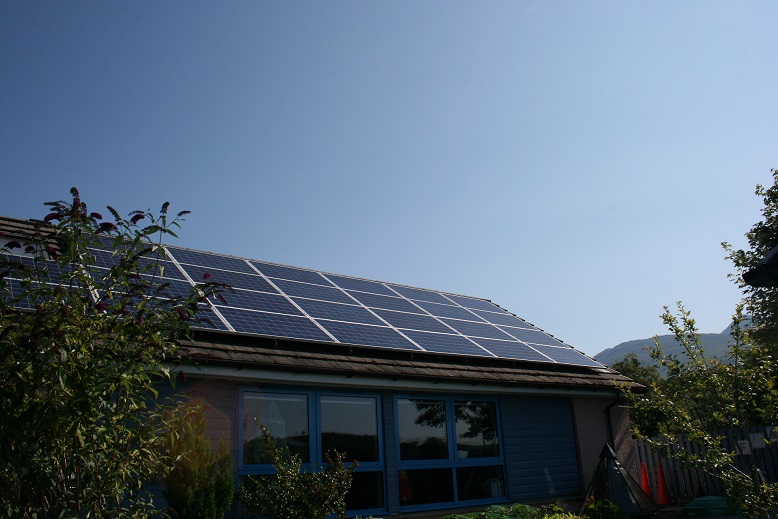
Image: Campbell & Kennedy.
Seven primary schools in the Glasgow area are to be fitted with solar panels with a combined total capacity of 350kWp under plans by the city council to reduce emissions by 30% by 2020.
Each of the schools will receive a 50kWp system to be installed by Campbell & Kennedy (C&K), which must design, install and connect the systems by the end of April 2017.
A statement from Glasgow City Council said: “This project will enhance the council’s commitment to the sustainability and resilience of these schools whilst providing a practical teaching resource for pupils.
“The 135 tonnes of CO2 that will be saved each year as a result of these installations demonstrates Glasgow City Council’s continuing aim in reducing our emissions by 30% by 2020.”
The contract was awarded following a mini competition via the ESPO Renewable Energy Solutions framework, which is available for use nationally by any public sector body in the UK.
Gerry Kennedy, managing director at Glasgow-based C&K, said: “We are delighted to have been appointed to these works. These schools are on our door-step and we’re pleased that not only will each school benefit from reduced electricity costs, but that as a local contractor we will be giving back to the community.”
C&K has been involved in several Eco projects at schools and colleges across Scotland and will deliver renewable energy school talks to primary school pupils as part of this project.
School roofs have often been thought of as the perfect application for solar installations, which can meet the buildings’ daytime energy consumption while providing an opportunity to teach pupils about renewable energy.
Speaking to sister title Inside Clean Energy in December 2016, Scott Burrows of Eden Sustainable which provides power purchase agreements (PPAs) to educational institutions, said: “With education sector you get the opportunity to really disseminate the message out to the future generations.
“The indirect effects are so significant as well as the direct financial savings and green reality.”
However, future installations are at risk from planned increases in business rates applied to buildings with solar which are likely to make a number of planned installs uneconomical. Combined with severe cuts to feed-in tariffs, solar charity 10:10 has said there will be “very few options available for schools who want to go solar now”.
The Solar Trade Association, which first uncovered the planned increase last summer, has recently redoubled its efforts to campaign against the plans after securing a partial concession to exempt systems used predominently for export.
Business rates fall under the purview of the Department for Communities and Local Government although under her previous role as energy minister, Baroness Neville-Rolfe stated the Department of Business, Energy and Industrial Strategy was working to address the design of the rates system which allowed only private schools and academies to be exempt.
However, after several requests for further information, including through a Freedom of Information requests, the government has refused to clarify what work is currently ongoing to address the issue.
